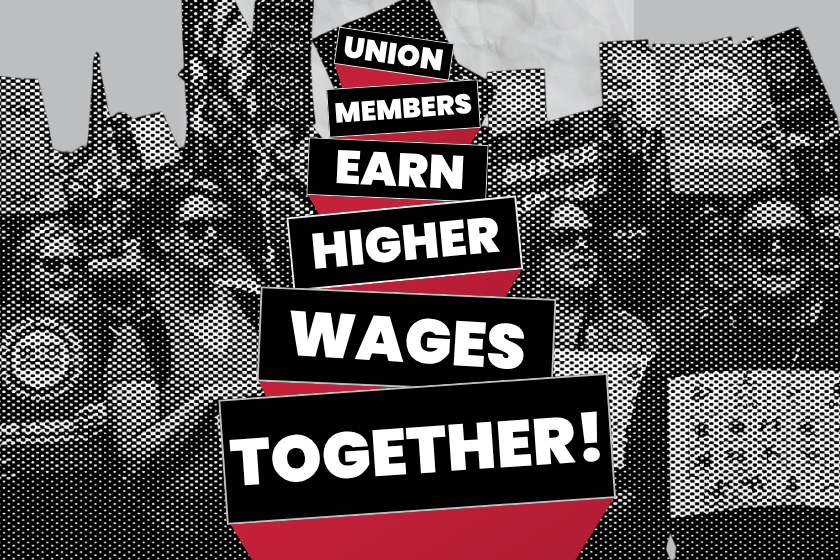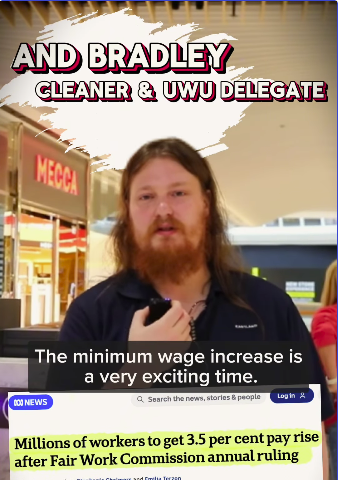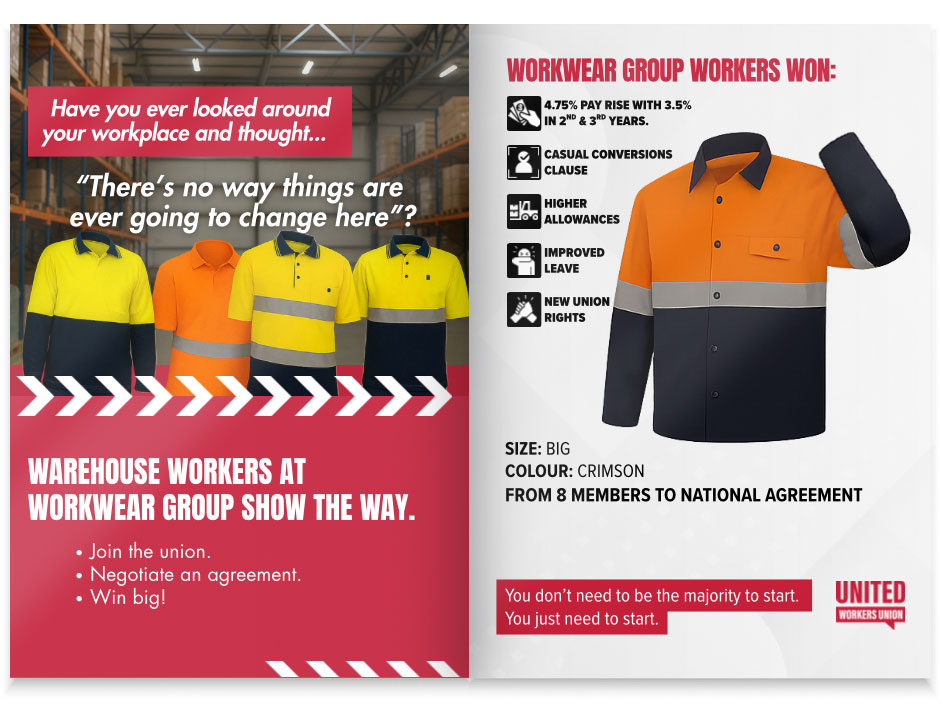Did you know you can have a say in what your pay and conditions are?

You’ve been chatting to your co-workers, and you all want change. Do you think your wages are too low for the work you do? Maybe you’re not getting enough breaks, need more leave to care for family, or you’ve got a great idea about a better rostering arrangement.
Whatever you think needs to be better, there is a way for you – as a worker – to negotiate better pay and conditions with your employer. Sounds a bit scary? It might be if you were on your own, but when you get together with your co-workers, A LOT can change.
In the union world, we call this enterprise bargaining. An enterprise bargaining agreement (EBA) can get you higher pay than the minimum standard set in the award.
Don’t know what an award is? Read on or watch our video to learn what awards and agreements are, and how you can be involved in making your workplace better.
So, how are pay rates decided?
The short answer is lots of people are involved in setting pay rates and conditions for workers – even YOU can be involved.
Awards and agreements are the two main ways your pay rate and working conditions are decided. First, let’s look at some rules around pay rates. There are 3 things to consider:
1. Your pay rate must not – by law – be lower than Australia’s minimum wage
The minimum wage for a full-time worker in Australia is $948 as of 1 July, 2025. This is the very base rate that any full or part-time worker can be paid. The only exceptions to this are junior rates, apprenticeships and traineeships. The Fair Work Commission (FWC) reviews and sets the minimum wage each year. You can learn more about the minimum wage review in our blog.
2. Most industries have minimum pay standards – known as awards
The FWC also sets minimum standards for 122 industries and occupations in Australia. These minimum standards are called awards, (or ‘modern’ awards). About 54% of UWU members are on award wages.
Minimum standards in awards relate to (i) pay rates for different skill levels and responsibilities and (ii) workplace conditions such as shift breaks, penalty rates, types of leave, leave loading etc.
The Fair Work Commission reviews award wages each year along with the minimum wage. You can look up the award for your industry and occupation on the Fair Work website.
EXAMPLE: The award rate for a Level 2 Cleaner is $26.70 p/hr, or $1014.70 p/wk (full-time)
3. If you’re not on an award, you’re most likely on an enterprise agreement
An enterprise agreement (EA) is a legally binding document between an employer and employees tailored to the specific conditions at your workplace. If your pay is set by an agreement, it means your co-workers created an opportunity to negotiate with your employer for pay and conditions that are more relevant to your specific workplace.
An agreement must commit to higher pay and better conditions than an award, known as the BOOT (Better Off Overall Test). An agreement lasts about 3-4 years before being renegotiated. This negotiation is known as enterprise bargaining, or collective bargaining. About 46% of our members are on an enterprise agreement.
You can search your enterprise agreement on the Fair Work Commission website.
EXAMPLE: A Level 2 Cleaner on this example agreement* rises each year to as much as $29.92 p/hr, or $1136.96 p/wk (full-time).
As you can see, in the above examples, a Level 2 Cleaner can earn more than $120 extra per week on an agreement, when compared to the award.
*Example from the Emmy Monash Aged Care Enterprise Agreement 2024-2027 : Pay rates as at 1 August 2025

” The minimum wage increase is a very exciting time, because our EBA makes sure we get a 3% increase over the minimum wage and that’s going to become 6.5% come June 2026.”
And Bradley, cleaner and UWU delegate
How do I work out if I’m on award or an agreement?
If you’re at a workplace with an agreement, it’s VERY important that you have a copy. You will usually be given a copy at your induction when you start your employment. Your payslip may also give you a clue about how your pay rate is set. You can also search your award or agreement online. But usually, the best way is to ask a co-worker, UWU member or your delegate.
What if I’m casual?
Casual staff are included in awards and agreements. You can check your award or agreement to see how much loading is included in the casual pay rate, but it’s commonly 25% extra pay but with fewer leave entitlements. Many agreements include rules about making casual staff permanent after a certain length of continuous employment.
Awards and agreements cover similar conditions, so which is better?
Awards cover a range of conditions, including:
- Minimum pay rates
- Hours of work
- Overtime and penalty rates
- Leave entitlements (annual, personal, sick)
- Breaks
- Allowances
Awards set minimum standards for an occupation, so they provide a good starting point for the types of demands you might ask for in an agreement, such as higher-than-award wages and better workplace-specific conditions.
Agreements create better working conditions for ALL workers
A great thing about winning conditions that are ‘outside the box’ is that eventually, it catches on. Other workplaces campaign for the same conditions, and eventually, just through people power, it makes it into the National Employment Standards. A great example of this is Parental Leave, Domestic Violence Leave, and better protections for casual workers.
Why do workers strike for better pay and conditions?
The only time you will ever see a strike or stop-work action is during an EA negotiation – it can happen when employers and employees cannot come to an agreement, and it shows how collective power can really work.
I want to get an agreement at my workplace
Although, agreements mostly cover large workplaces, it’s possible to negotiate for an EA in smaller workplaces too.
A Workwear Group site in Melbourne, with a total of 68 employees, had only 8 that were UWU members. Our members decided to start negotiating for an enterprise agreement and before long, they had grown to 56 members as more workers got involved to imagine and create a better workplace.

Not only did they win some real change on wage rises for the next 3 years –and a bunch of better conditions from their log of claims – they also won a national agreement that covers a site in West Australia that had no UWU members at the time!
Start bargaining!
If you’d like to negotiate an agreement at your workplace, you can make your employer start bargaining. When you’ve got at least half of your co-workers on board, contact United Workers Union for advice. Get as many co-workers to join UWU as you can.
You don’t have to wait until your next EBA negotiation to start thinking about what you would like to see happen to make your workplace a better place for those it affects the most – the workers.
Sign up to our mail list for more articles like this one:

